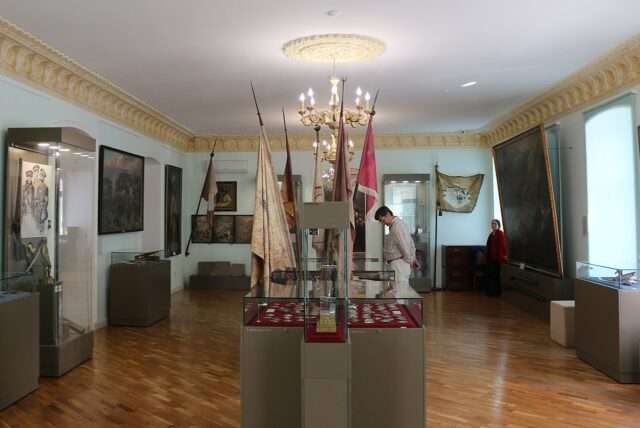Russian domestic politics: promoting Dagestan culture among the ethnic Russians

Kavkaz Files ISSN 2975-0474 Volume 11 Issue 2
Author: Giuliano Bifolchi
Kremlin’s promotion of Dagestan culture and society in Sochi underlines Moscow’s goal to contrast Kavkazophobia and, simultaneously, improve the link between ethnic Russians and local ethnic Dagestani groups since this North Caucasian republic has a strategic role in the Caspian Sea region.
According to local and Russian sources, the Rora Khutor resort in Sochi is hosting a special exhibition dedicated to the peoples of Dagestan in the cultural and ethnographic complex “My Russia”. The National Museum of Dagestan, named after Takho-Godi, organised the “One Country – Many Peoples” exhibition since 30 nationalities who speak 72 dialects live in Dagestan. According to Zaira Kildeeva, the chief curator of the National Museum of Dagestan, until December, the exhibition will represent the culture and arts of the Dargins, and later there will be an exposition dedicated to the Avars.
Dagestan: A Geopolitical Scenario
Dagestan has a strategic role due to its geographical position in the North Caucasus and the Caspian Sea region. Indeed, the Kremlin has invested copious financial funds to improve the socioeconomic conditions in Dagestan and transform the Northern Caucasian republic into a logistic hub interconnected with Caspian Sea countries and Central Asian republics.
Undoubtedly, Dagestan might play a decisive role in the International North-South Transport Corridor (INSTC), whose goal is to link the Russian Federation with India across the Caucasus and Iran. In this regard, in the last years, the Russian central authority has supported the improvement of the Makhachkala Sea Trade Port to transform this infrastructure into a logistic hub and promote the Dagestani market to attract foreign direct investments (FDIs) and create economic partnerships with Caspian Sea republics, especially Iran.
In addition, looking at its strategic role, the Republic of Dagestan shares borders with Azerbaijan, a country with whom the Russian Federation reached in April 2022 the agreement to implemet the Action Plan for the development of key areas of cooperation through 2024.
On the other hand, in the last years, Dagestan has experienced domestic problems related to terrorist organisations, violent attacks and local militancy. Even though the current security situation in the entire North Caucasus has improved thanks to military operations and socioeconomic projects, the region, especially Dagestan, is not immune from jihadist propaganda, whose purpose is to exploit internal division, local ethnic conflicts, and social problems such as youth unemployment.
Due to terrorist activities, the entire ethnic Russians have perceived the North Caucasus as an inner abroad or a region where local people have different traditions and rely more on local customary laws than the Russian federal laws. Therefore, in the last decades, the Russian Federation has witnessed the phenomenon of Kavkazophobia (the fear of the Caucasus), and the spread of negative feelings towards the North Caucasian people culminated in the political slogan “Hvatit Kormit Kavkaz” (Stop feeding the Caucasus).
Conclusion
Promoting Dagestan’s people and culture is part of the Kremlin’s strategy to realise a cohesive society where ethnic and non-ethnic Russians might live together as one nation and overcome cultural and religious differences. Organising this kind of event in the city of Sochi, one of the fastest-growing cities in the Russian Federation and a tourist destination among the Russians where the Kremlin organised the 2014 Winter Olympic Games, might support Moscow’s necessity to create a more vital link between the Russians and the Dagestani people and contrast social phenomenon such as Kavkazophobia.
Since the Ukraine conflict, the Western sanctions against Moscow have caused socioeconomic problems and influenced the State budget devoted to promoting and implementing infrastructural projects in Russian strategic regions such as the North Caucasus. Therefore, the Russian central authority needs to decrease any domestic friction and social problems to promote the idea of “one nation” and avoid that external propaganda and pressures might create ethnic conflicts in the North Caucasus and inside the Russian sovereign territory
Do you like SpecialEurasia reports and analyses? Has our groundbreaking research empowered you or your team? Now is your chance to be a part of our mission! Join us in advancing independent reporting and unlocking the secrets of Eurasia’s complex geopolitical landscape. Whether through a one-time contribution or a monthly/yearly donation, your support will fuel our relentless pursuit of knowledge and understanding. Together, let’s pave the way for a brighter future. DONATE NOW and secure your place in shaping the geopolitical narrative.
